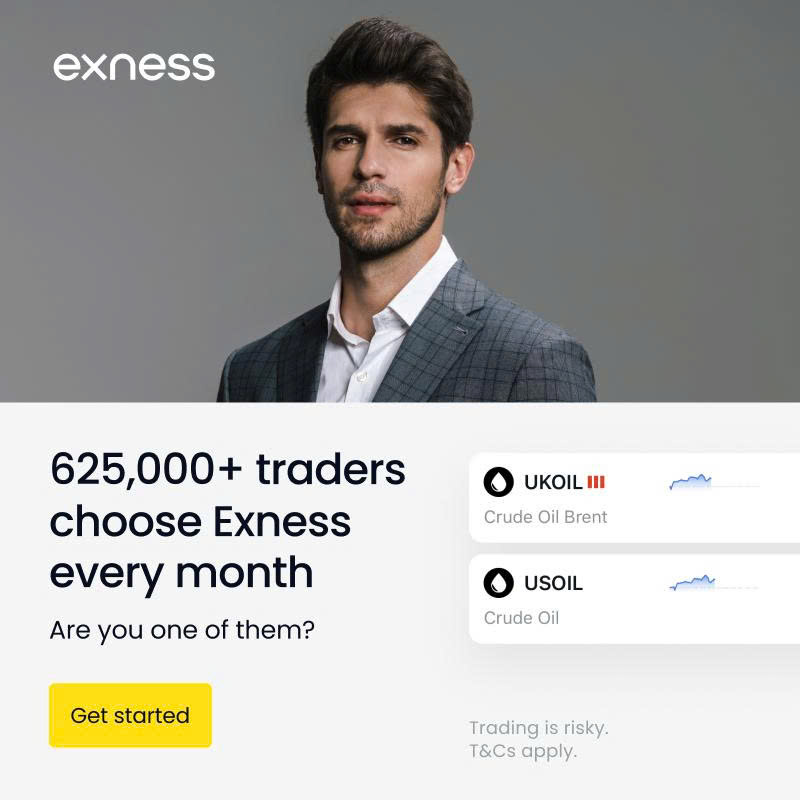
8 minute read
Is Forex Trading Illegal in Malaysia? A Clear and Comprehensive Guide
Forex trading—buying and selling currencies to profit from exchange rate fluctuations—is a hot topic globally, and Malaysia is no exception. But is forex trading illegal in Malaysia? The short answer is no, forex trading is legal in Malaysia, provided you follow the rules set by the country’s financial authorities. However, there’s a lot of confusion surrounding the topic due to strict regulations and occasional scams. In this article, I’ll break down the legal landscape, explain how to trade safely, and share practical tips for Malaysians looking to dive into the forex market. Let’s get started!
Top 4 Best Forex Brokers in Malaysia
1️⃣ Exness: Open An Account or Visit Brokers 🏆
2️⃣ XM: Open An Account or Visit Brokers 💥
3️⃣ JustMarkets: Open An Account or Visit Brokers ✅
4️⃣ Quotex: Open An Account or Visit Brokers 🌐
Understanding Forex Trading in Malaysia
Before we dive deeper, let’s clarify what forex trading is. It’s the process of exchanging one currency for another, like buying US dollars with Malaysian Ringgit (MYR) in hopes that the dollar’s value will rise. The forex market is massive—think $7.5 trillion traded daily worldwide—and it operates 24/5 across major financial hubs like London, New York, and Tokyo. In Malaysia, forex trading has exploded in popularity thanks to online platforms like MetaTrader 4 (MT4) and MetaTrader 5 (MT5), which make it accessible to everyone from young professionals to retirees.
But here’s where things get tricky: while forex trading is legal, it’s tightly regulated to protect traders and maintain financial stability. So, how do you stay on the right side of the law? Let’s explore.
The Legal Framework: Is Forex Trading Really Legal?
Yes, forex trading is 100% legal in Malaysia, but there’s a catch—you must trade through licensed institutions or brokers approved by Malaysian authorities. The key players overseeing forex trading are:
Bank Negara Malaysia (BNM): As Malaysia’s central bank, BNM regulates the Malaysian Ringgit and licenses financial institutions involved in forex trading. Their goal? Ensure financial stability and protect consumers from scams.
Securities Commission Malaysia (SC): The SC oversees capital market activities, including forex brokers offering derivative products like Contracts for Difference (CFDs).
Labuan Financial Services Authority (LFSA): This body regulates offshore brokers in Labuan, a Malaysian federal territory, allowing them to serve clients from Peninsular Malaysia.
In 2012, BNM clarified that forex trading is permitted through licensed institutions like commercial banks, Islamic banks, or international brokers regulated by reputable jurisdictions (e.g., the UK, Australia, or Singapore). Trading with unregulated brokers or unauthorized money changers, however, is illegal and risky. BNM’s Financial Consumer Alert (FCA) List flags nearly 400 companies involved in shady financial activities, so always check a broker’s status before signing up.
Key Regulations You Need to Know
To keep things legal, Malaysia enforces specific rules for forex trading:
Leverage Limits: BNM caps leverage at 1:50 for retail traders. This means you can borrow up to 50 times your capital to trade, but higher leverage (like 1:500 offered by some offshore brokers) is not allowed locally. Lower leverage reduces risk but also limits potential profits.
Segregated Accounts: Licensed brokers must keep client funds in separate accounts to protect your money if the broker faces financial trouble.
Shariah-Compliant Accounts: For Muslim traders, forex trading can be halal if you use swap-free Islamic accounts that avoid interest (riba) and speculative practices. Brokers like AvaTrade, Octa, and Pepperstone offer these accounts.
Breaking these rules—say, by trading with an unlicensed broker—can lead to frozen funds or legal trouble. The good news? Stick to regulated brokers, and you’re in the clear.

✅ Trade with Exness now: Open An Account or Visit Brokers 👈
Why the Confusion About Legality?
Despite the clear regulations, many Malaysians worry forex trading is illegal. Why? A few reasons:
Past Restrictions: In the late 1980s, BNM’s heavy forex market involvement led to significant losses, raising red flags about speculative trading. This history left a lingering stigma.
Scams and Fraud: Forex scams promising “guaranteed profits” are rampant. BNM frequently warns against schemes that lure people with free seminars or unrealistic returns. These scams fuel the perception that forex trading itself is shady.
Complex Regulations: The rules around offshore brokers and leverage can feel murky. For example, while trading with international brokers is legal, the SC has cracked down on unlicensed ones since 2020, causing some to stop accepting Malaysian clients.
The truth is, as long as you trade with a licensed or regulated broker, you’re operating within the law. The trick is knowing how to choose the right one.
How to Trade Forex Legally in Malaysia
Ready to start trading? Here’s a step-by-step guide to doing it safely and legally:
Choose a Regulated Broker: Pick a broker licensed by BNM, LFSA, or reputable international regulators like the UK’s FCA or Australia’s ASIC. Top picks for Malaysians include IG, AvaTrade, and VT Markets Malaysia, which offer transparent conditions and Shariah-compliant accounts. Always verify the broker’s license on their website or with the regulator.
Open a Trading Account: Sign up with your chosen broker and complete their verification process (usually requiring ID documents). Most brokers offer demo accounts to practice without risking real money.
Use a Trusted Platform: Platforms like MT4 and MT5 are legal and widely used in Malaysia for their advanced charting and automated trading tools. Test the platform with a demo account first.
Start Small: Begin with a small deposit—some brokers allow as little as $1. Avoid using money you can’t afford to lose, as forex trading is high-risk.
Implement Risk Management: Use stop-loss orders to limit losses and avoid over-leveraging. Discipline is key to avoiding the emotional rollercoaster of trading.
Stay Informed: Follow updates from BNM and the SC to stay compliant. Join trading communities or attend webinars for ongoing education.
Risks of Forex Trading in Malaysia
Forex trading isn’t a get-rich-quick scheme—it’s risky. Here are the main pitfalls to watch out for:
Market Volatility: Currency prices can swing wildly, leading to unexpected losses or margin calls.
Leverage Risks: Even with a 1:50 cap, leverage can amplify losses as much as it boosts profits.
Scams: Unregulated brokers may disappear with your money or make withdrawals impossible. Always check BNM’s FCA List before investing.
Counterparty Risk: If an unregulated broker goes bankrupt, recovering your funds can be tough.
To minimize these risks, stick to regulated brokers, use risk management tools, and educate yourself on technical and fundamental analysis.
Tax Implications for Forex Traders
Here’s a question I get a lot: do you have to pay taxes on forex profits in Malaysia? The answer depends on how you trade:
Capital Gains: Profits from forex trading are generally tax-free in Malaysia, as capital gains are not taxed.
Income Tax: If forex trading is your primary income source, your profits are subject to income tax, ranging from 1% to 30% based on your earnings. Non-residents only pay tax on income earned in Malaysia.
Islamic Accounts: Using a Shariah-compliant account may reduce tax obligations for Muslim traders, as these accounts avoid interest-based transactions.
Always consult a tax professional to understand your specific obligations.
Tips for Successful Forex Trading in Malaysia
Want to trade forex like a pro? Here are some practical tips:
Educate Yourself: Learn the basics of technical analysis (e.g., Fibonacci retracement, moving averages) and fundamental analysis (e.g., tracking economic news). Brokers like JustMarkets offer free educational resources.
Practice with a Demo Account: Test your strategies risk-free before diving into live trading.
Choose Low-Cost Brokers: Look for brokers with tight spreads and low or no withdrawal fees to maximize profits.
Trade During Peak Hours: The forex market is most active during the London and New York sessions (evening to midnight in Malaysia), offering better liquidity and tighter spreads.
Stay Disciplined: Avoid impulsive trades driven by fear or greed. Stick to a trading plan and use stop-loss orders.
Why Forex Trading Appeals to Malaysians
Forex trading’s popularity in Malaysia is no surprise. The flexibility to trade from anywhere, low entry barriers (some brokers require just $1), and the potential for high returns draw in everyone from students to seasoned investors. Plus, Malaysia’s growing economy and increasing interest in global markets make forex an attractive way to diversify portfolios.
But it’s not all rosy. The psychological toll of trading—stress from losses or the temptation to overtrade—can be intense. That’s why discipline, education, and a solid strategy are non-negotiable.
Final Thoughts: Trade Smart, Stay Legal
So, is forex trading illegal in Malaysia? Absolutely not—it’s legal, regulated, and accessible, as long as you use licensed brokers and follow BNM and SC guidelines. By choosing a reputable broker, practicing risk management, and staying educated, you can navigate the forex market with confidence. Whether you’re a beginner or a seasoned trader, Malaysia’s forex landscape offers plenty of opportunities to profit, provided you play by the rules.
✅ Trade with Exness now: Open An Account or Visit Brokers 👈
Read more:

